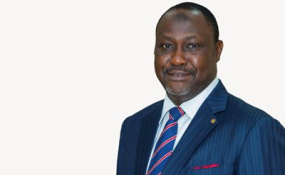By Juanita Williams
Third President & Chief Executive Officer of the Africa Finance Corporation, Samaila Zubairu – an accomplished Infrastructure development finance specialist with over 29 years of professional experience – after the Afreximbank meetings in Moscow, where the talk centered on improving infrastructure on the continent and how crucial projects will be financed.
What is the African Finance Corporation’s (AFC) role in what could be considered the continent’s biggest challenge?
The AFC is one of those initiatives which demonstrates that Africans are taking ownership and responsibility for our challenges, our problems, our opportunities and our potential. African states decided in 2007 to create a financial institution that would provide solutions to Africa’s infrastructure deficit and challenging business environment by developing and financing infrastructure, natural resources and industrial assets with a view to enhancing productivity and generating economic growth for the African state.
We have since executed that mandate through investments in energy, transport and logistics, natural resources, telecoms and promoting Intra-African trade and export trade from Africa. Since we were created in 2007, AFC has invested U.S. $5.5 billion across 28 African countries. Back then investment requirements for infrastructure were about U.S. $30 billion needed annually for 10 years. That number has since grown to U.S. $170 billion required annually. If we look at that number because it is so huge, the highest need is in water and sanitation where U.S. $67 billion is required annually; next to that is energy with U.S. $50 billion required annually, transport and logistics with U.S. $47 billion required. And then ICT needs U.S. $7 billion.
In general, over the past six to seven years, Africa as a whole has invested about U.S. $77 billion. That leaves a funding gap… some people say we need U.S.$100 billion, some say it’s U.S. $70 billion, but I look at the higher number because you have to maintain what exists – because if we don’t maintain it, it deteriorates and it adds to the gap. So African governments have actually been the biggest investor followed by Infrastructure Construction for Africa, which is the combination of the G8, development institutions like ourselves and other institutions from Africa, and then we have China and the Middle East investors.
What does Africa need to move forward on these plans?
More private capital to fund infrastructure investments – it is so important because we know that infrastructure deficits reduced GDP growth by 2 percent and reduce productivity by 40 percent, and if you put that within the context of a young continent where 50 percent of the population is under the age of 35 years, possibly under 24 years old, then you can see the challenges. You have to understand that over half the continent has no access to electricity, then you see why we need to do things differently. We have to look at what they call ecosystems if you are looking at infrastructure development. You have to understand that we need to do more beneficiation on the content. We have to create more jobs on the continent, we have to provide the infrastructure that will allow for higher regional trade.
Today Africa has the lowest regional trade. We heard that it is about 15 percent today but the best estimate is at 18 percent. That is so low compared to the European Union where we have about 70 percent of trade within the union. Asia has 60 percent within the union, North America about 40 percent. The reason why we don’t have enough trade within Africa is that you need to be able to move goods and services and people across the region, and infrastructure is required for that to happen.



